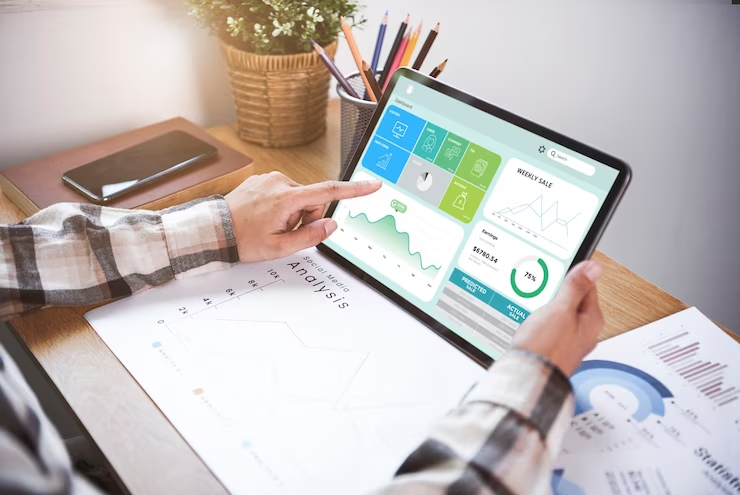The Future of Small Business Accounting: How Software is Revolutionizing the Industry
Small businesses are the backbone of the economy. Managing the finances of a small business can be challenging. Accounting is an essential part of managing any business, and small businesses are no exception.
In the past, small businesses relied on manual accounting methods, which were time-consuming and prone to errors. However, with the advent of accounting software, small businesses can manage their finances more efficiently and accurately.
The Rise of Accounting Software for Small Businesses
With advancements in technology and the rise of cloud computing, accounting software has become more accessible to small businesses.
According to a report by Fortune Business Insights, the global accounting software market size is expected to reach $20.4 billion by 2026, growing at a CAGR of 8.02% from 2019 to 2026. The report also states that the growing demand for cloud-based accounting software drives the market’s growth.
Benefits of Using Accounting Software
One of the most significant advantages is the automation of repetitive tasks, such as data entry, invoicing, and payment processing. This automation saves time and reduces the chances of errors.
Online accounting software provides real-time financial insights, allowing small business owners to make informed decisions. Furthermore, accounting software improves collaboration between different departments, such as finance and sales.
The Top-Rated Accounting Software for Small Businesses
There are several accounting software options available for small businesses. We have compiled a list of the top-rated accounting software for small businesses:
- Zoho Books is a cloud-based accounting software that provides features such as invoicing, expense tracking, project management, and inventory management. The software is easy to use and offers a mobile app for on-the-go management.
- Xero provides features such as invoicing, expense tracking, bank reconciliation, and payroll. The software integrates with over 800 third-party apps, making it a versatile option for small businesses.
- NetSuite is an ERP software that provides features such as financial management, inventory management, order management, and e-commerce. The design is apt for small and medium-sized businesses and can handle multiple currencies and languages.
- QuickBooks Online software provides features such as invoicing, expense tracking, bank reconciliation, and payroll. The software integrates with over 650 third-party apps and has a mobile app for on-the-go management.
- Wave provides features such as invoicing, expense tracking, and receipt scanning. It is free to use, making it an excellent option for small businesses on a budget.
Revolutionizing Small Business Accounting
Accounting software is revolutionizing the way small businesses manage their finances. With automation, real-time financial insights, and improved collaboration, accounting software can save time, reduce errors, and help small business owners make informed decisions.
Small business owners should consider their business needs and budget when choosing an accounting software option and should try out a few different options before making a final decision.
The future of small business accounting is bright, and with the continued advancements in technology, we can expect to see even more innovative solutions in the coming years.
Conclusion
Small business accounting software is a game-changer for businesses. It saves time, reduces errors, and provides real-time financial insights that allow small business owners to make informed decisions. Zoho Books, Xero, NetSuite, QuickBooks Online, and Wave are some of the best accounting software for small businesses.
As the accounting software market continues to grow, we can expect to see even more innovative solutions that will help small businesses thrive in the future.






